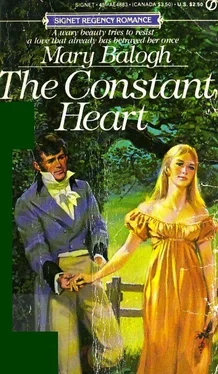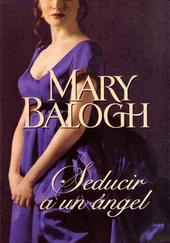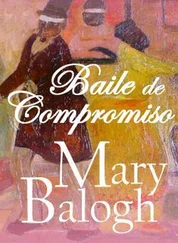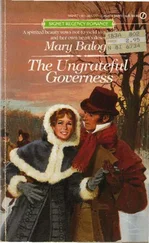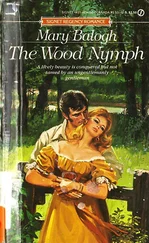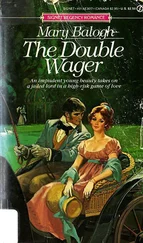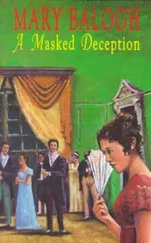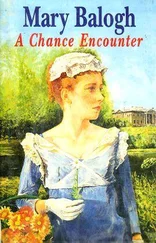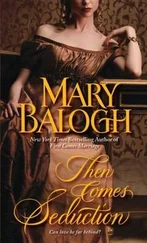Maude's eyes had dropped to the tea in the cup she held with one hand. "I shall not go, then, my lord," she said quietly, "if you do not wish it."
Rebecca turned her attention away from this mild domestic dispute. She felt sorry for Maude. Her uncle's wife was a quiet and sensible girl. Yet she was married to a foolish and vain man thirty years her senior. He should have been much wiser than she, a father figure almost. Certainly he thought himself wiser. Consequently, he gave her very little freedom. It was not that he was a tyrannical or hardhearted man. Rather he was an aging man who was trying to prolong or recapture his own youth through a young wife. He cosseted her, protected her, and treated her more as a fragile doll than a woman. Having always been idle yet contented himself, he failed to understand that his wife was bored and restless.
It was a great shame that he refused to listen to her occasional pleas for more activity, Rebecca reflected. At least so far her suggestions had all been on the side of good. She had wished to create a flower garden to the south of the house, doing much of the work herself. The flower garden was now in existence, but Lady Holmes had not been permitted any part in its creation. She had wished to visit the sick, taking with her gifts of baking and needlework that she had made herself. She now did visit the sick one afternoon a month, conveyed in the baron's best closed traveling carriage. But she carried offerings that the servants had made. And now she wished to help at the school.
Perhaps if she became bored and frustrated enough, Lady Holmes would turn her attention to less desirable activities. Perhaps she would learn to ride recklessly or.. Rebecca's imagination at the moment could provide no vice more terrible than that. But she did feel sorry for Maude. She knew that she herself would chafe terribly against such restrictions. At least with Philip she would be sure of always having plenty to do.
She let her eyes roam around the rest of the group gathered in the drawing room. Julian Sinclair, eager and boyish, was talking earnestly to Harriet. He fancied himself in love with her, perhaps really was so. They had grown up together, were only a year apart in age. He must know her well enough to know that she was moody: haughty one minute, all contrite affection the next; coldly aloof at one time, warmly impulsive at another. Yet he still sought her company, beseeched her with his eyes for something more than the offhand treatment he usually received from her.
Harriet, Rebecca suspected, still did not know what she wanted of life. She shared much of her father's vanity and foolishness. Yet against all reason, Rebecca was fond of her cousin. She had little reason to be. Harriet had scant patience for Rebecca's apparent lack of interest in her personal appearance and advancement and for her devotion to helping others.
She had once called Philip a pompous ass, but that had been immediately after she had been forced to listen to a sermon in which he had condemned the vanity of worldly possessions. She had been convinced that the sermon was directed against her because she was sitting conspicuously in her father's padded pew at the front of the church wearing a particularly frivolous new bonnet. She had apologized to Rebecca later the same day, saying that the sermon could not have been meant personally as the Reverend Everett's sermons were always prepared in advance and he could have had no way of knowing that she would be wearing a new bonnet on that particular Sunday.
However it was, Rebecca considered Julian's chances of winning Harriet slim. He was too young and unsure of himself to control her headstrong temperament. And he was of no social significance. The Sinclairs were of good lineage and were a long-established family in the county. But they had never been particularly wealthy or prominent in any other way. Their only claim to distinction at present was their relationship to Christopher Sinclair, who had made himself quite fabulously wealthy by contracting a marriage with the daughter of a cit, a man who had amassed a fortune in business and trade.
Rebecca had no wish to continue that train of thought. She turned her attention to Mr. Bartlett, who was entertaining the two Sinclair girls. He was smiling; his eyes were dancing. The two girls were listening to him, bright-eyed and rapt. Rebecca found herself smiling too. Their family circle had certainly brightened since the arrival of Maude's brother, despite the fact that Maude herself had not seemed overjoyed to see him when he arrived unexpectedly. Maude still seemed not to think of Limeglade as her home. She seemed to have felt embarrassed that a relative of hers would invite himself to stay with Lord Holmes.
But he was a delightful man, Rebecca had decided. He was not remarkably handsome. He was of medium height, had auburn, wavy hair and eyebrows, and a pale complexion. His eyes were brown and set perhaps rather too close together for perfection. But they were candid and smiling eyes. His teeth were rather large for his face, or his mouth was too wide. But they were white teeth and showed frequently. He smiled a great deal.
He made friends very easily, a quality that Rebecca admired in him. Soon after his arrival he was on the best of terms with both the baron and Harriet, and thus any resentment that his unexpected visit might have caused was smoothed over. He made an effort to converse with Rebecca, though he need not have done so. Her approval was not necessary to his continued stay in the house. He had expressed interest in the school and had even agreed with her opinion that some form of education should be offered to the girls of the village, too. Philip had never been sympathetic to that idea. Mr. Bartlett had met Philip and the Sinclairs and had been warmly welcomed by all.
Only Maude, strangely enough, seemed less than delighted by his presence. But Rebecca could understand why. It must be hard for a girl as quiet and shy as Maude to have a brother like Mr. Bartlett, a man so much at his ease in company. She had taken months to get to know and feel comfortable with people whose approbation he had won within days. It must seem unfair to her to know that they were of the same family yet were so different in temperament.
The Misses Sinclair were the first to rise to leave. Julian reluctantly followed their lead and got to his feet.
"Christopher will be here in two days' time," Ellen reminded the company. "I do not know how we will live through the rest of today and tomorrow. We will bring him to visit as soon as may be, Lady Holmes." She turned eagerly to Mr. Bartlett. "And you and he will have a chance to renew your acquaintance," she said.
Mr. Bartlett smiled and bowed.
After they had left, Lady Holmes rang the bell for the butler to remove the tea tray, and everyone sat down again.
"I am so pleased that Mr. Christopher Sinclair is coming here," said Harriet. "He is a very fashionable man, is he not, Papa?"
"Decidedly so, my dear," her father agreed. He had taken a jeweled snuffbox from the table beside him, placed a pinch on the back of his right hand, and sniffed delicately through each nostril in turn. Then he took a lace-bordered handkerchief from his pocket and waited with half-closed eyes and twitching nostrils for the sneeze to follow.
Having completed the action to his own satisfaction, he continued the conversation. "It will be interesting to hear what news he brings from town," he said. "It is so difficult here to be up to the minute on what styles and fabrics are currently in fashion. Mr. Bartlett, did you not tell me that black had become an almost acceptable color for evening wear? I can scarcely conceive of such a thing. Black!" He shuddered delicately.
"Beau Brummell started the fashion, my lord," Mr. Bartlett replied, "though at the time it seemed just a personal eccentricity. Yet now one sees the style with fair frequency. Of course, all men of any distinction of looks and bearing-like yourself, my lord, if I may be permitted to say so-still prefer more palatable colors."
Читать дальше
